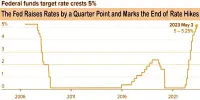Climate finance refers to local, national, or transnational financing derived from public, private, and alternative sources of funding to support climate change mitigation and adaptation actions. Equity considerations are critical in directing global financial flows for regional climate mitigation investments. A new study contributes to the current COP27 negotiations while keeping fairness at the forefront.
It is obvious that we must invest in climate mitigation now rather than later. The Intergovernmental Panel on Climate Change (IPCC) sixth assessment report (AR6) demonstrated that mitigation investment pathways could achieve global climate goals in a cost-effective manner; however, who should finance those investments has been a source of contention at recent COPs.
An international team of researchers investigated how global investments could be distributed among the world’s countries in a new IIASA-led study published in Science. The team used a systematic approach to estimate “fair” financial flows between regions, taking into account various equity and fairness considerations.
The study is based on emerging climate equity principles and focuses on mitigation investment needs to be deployed in the near term up to 2030.
A number of mitigation technologies are nearing completion. If we are to deploy them at the rate required to meet our climate targets, we must ensure that they are also implemented on a large scale in the world’s poorest regions.
Christoph Bertram
“We find that the US$100 billion pledged for mitigation and adaptation from developed to developing countries is insufficient to leverage the scale of financing required to meet the long-term temperature target fairly. Even under the most favorable fairness assumptions for the rich countries, global finance flows to developing countries must be increased to between $250 and 550 billion per year “says IIASA Energy, Climate, and Environment Program Director Keywan Riahi, one of the study’s coauthors.
“Previous work has focused on fair global carbon budget-sharing schemes, but few have focused on equity considerations in the financing of mitigation investments,” says Shonali Pachauri, IIASA Transformative Institutional and Social Solutions Research Group Leader and study lead author.
Investing in mitigation actions in low-income regions is not only important from an ethical point of view, but as the authors explain, it can be a productive use of capital.

“A number of mitigation technologies are nearing completion. If we are to deploy them at the rate required to meet our climate targets, we must ensure that they are also implemented on a large scale in the world’s poorest regions” says Christoph Bertram, a researcher at the Potsdam Institute for Climate Impact Research and study coauthor.
Under most equity considerations, the researchers discovered that flows from North America and Europe to other regions would need to increase significantly relative to current levels in order to meet the Paris Agreement goals. They estimated that the financial flow required under the selected equity considerations ranges between $250 billion and $1.5 trillion per year.
According to the authors, the new collectively quantified goal is one of the most important points of negotiation at COP27.
“This is a critical opportunity for governments to signal to one another and the private financial sector the magnitude and direction of the necessary financial flows,” says Setu Pelz, coauthor of the study and researcher in the IIASA Transformative Institutional and Social Solutions Research Group.
“The ability to redirect international and domestic finance toward urgent near-term mitigation investments will be critical to the success of the COP27 negotiations. Progress in this area will send a clear signal to governments, industry, and non-governmental actors, and will be critical in generating the necessary momentum in regions where finance is scarce” Pachauri wraps up.
















